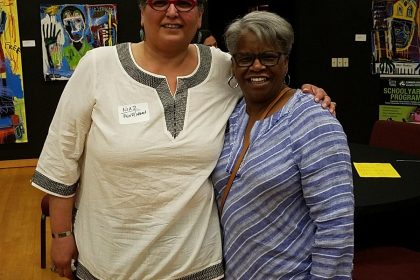
On July 22 at a brightly painted building on Farmington Avenue in Hartford, I got to witness something amazing for Connecticut Food System Alliance’s Food Summit and Network Launch. I had an opportunity to see just how far and how deep the influences of food really go and how incredibly layered and nuanced they are.
More than 70 people showed up to talk and learn about food system issues for six hours, and all of them came from different walks of life. They had an opportunity to find out how many facets of their life food system issues touched and how crucial the current problems surrounding food have become.
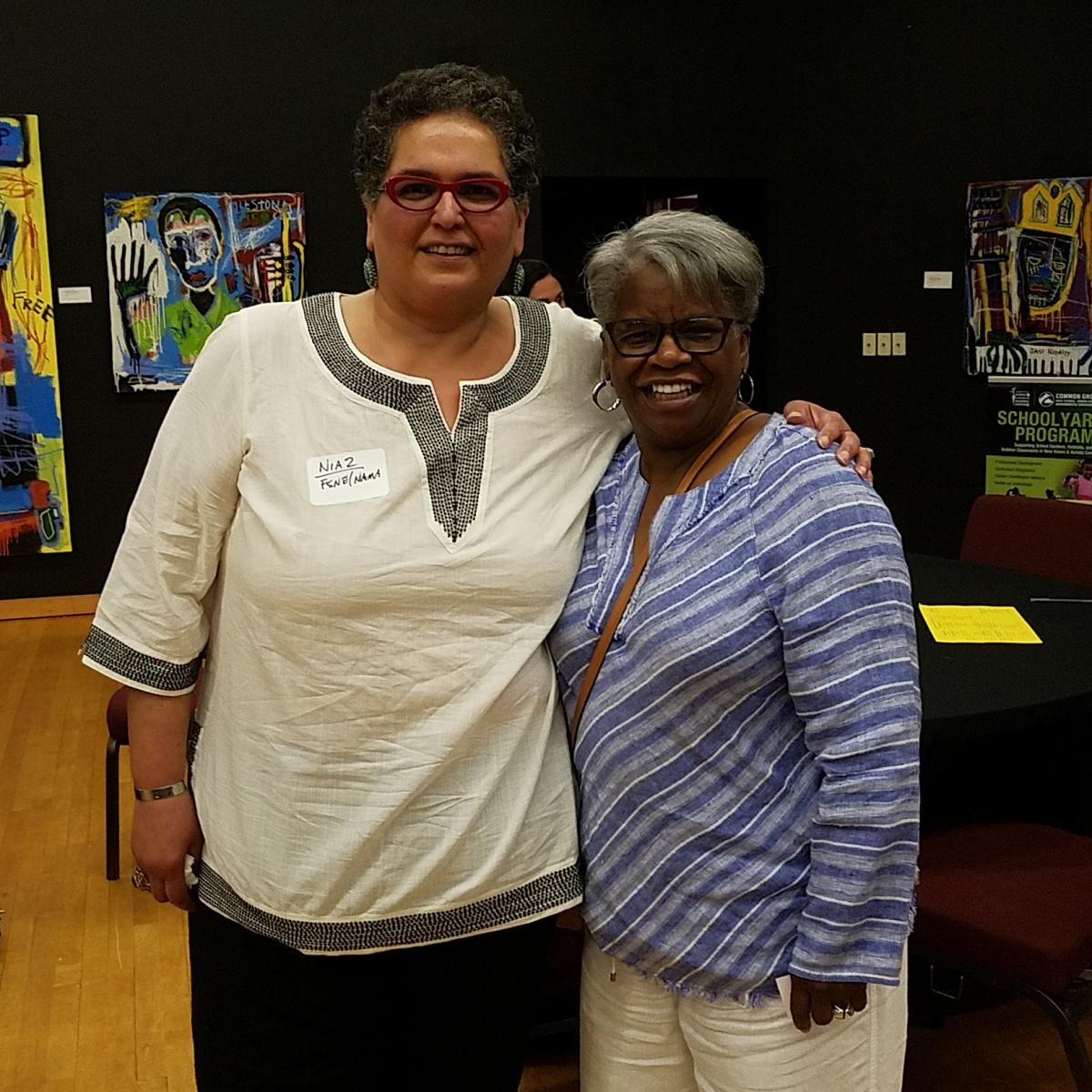 From farmers and senators, nonprofits and businesses (both large and small), young and old, and the curious to the thoroughly educated in the topics of food, animated and dynamic discussion occurred throughout the day. The event was reinforced by speakers such as Senator Marilyn Moore, Suzannah Holsenbeck of Common Ground Schoolyards, Cristina Sandolo of Green Village Initiative, Michelle McCabe of Council of Churches of Greater Bridgeport, Sarah Pandoursky of Wholesome Wave, Bill Duesing of Old Solar Farm, Michael Keilty of Maple Spring Farm, and Maegan Parrott of Parent Advocate in New London, who brought different aspects of the food system discussion to the table.
From farmers and senators, nonprofits and businesses (both large and small), young and old, and the curious to the thoroughly educated in the topics of food, animated and dynamic discussion occurred throughout the day. The event was reinforced by speakers such as Senator Marilyn Moore, Suzannah Holsenbeck of Common Ground Schoolyards, Cristina Sandolo of Green Village Initiative, Michelle McCabe of Council of Churches of Greater Bridgeport, Sarah Pandoursky of Wholesome Wave, Bill Duesing of Old Solar Farm, Michael Keilty of Maple Spring Farm, and Maegan Parrott of Parent Advocate in New London, who brought different aspects of the food system discussion to the table.
Niaz Dorry, Director of the Northwest Atlantic Marine Alliance, called attention to fisheries in her opening remarks for the day. Connecticut’s fisheries are a vital part of our economy and attendees were challenged to include this in our shared vision for a just, sustainable food system in Connecticut. She also presented a regional context, tying the Connecticut Food System Alliance’s work to the Food Solutions New England network and a New England Food Vision.
There were two sets of panels for the day. In the morning, three panels focused on the Connecticut Food System Alliance’s three major goals: Strong Communities, Sustainable Food Economy, and Informed Consumers. The Strong Communities Panel featured discussion about food access and programs that combat food insecurity; the Sustainable Food Economy Panel featured two farmers discussing farmland and farm viability; and the Informed Consumers Panel explored how to build engaging agricultural and nutrition education programs in communities and in partnership with schools. In the afternoon, two workshops followed: community organizing and structured networking, in which attendees learned community organizing skills and connected with others based on shared needs and skills.
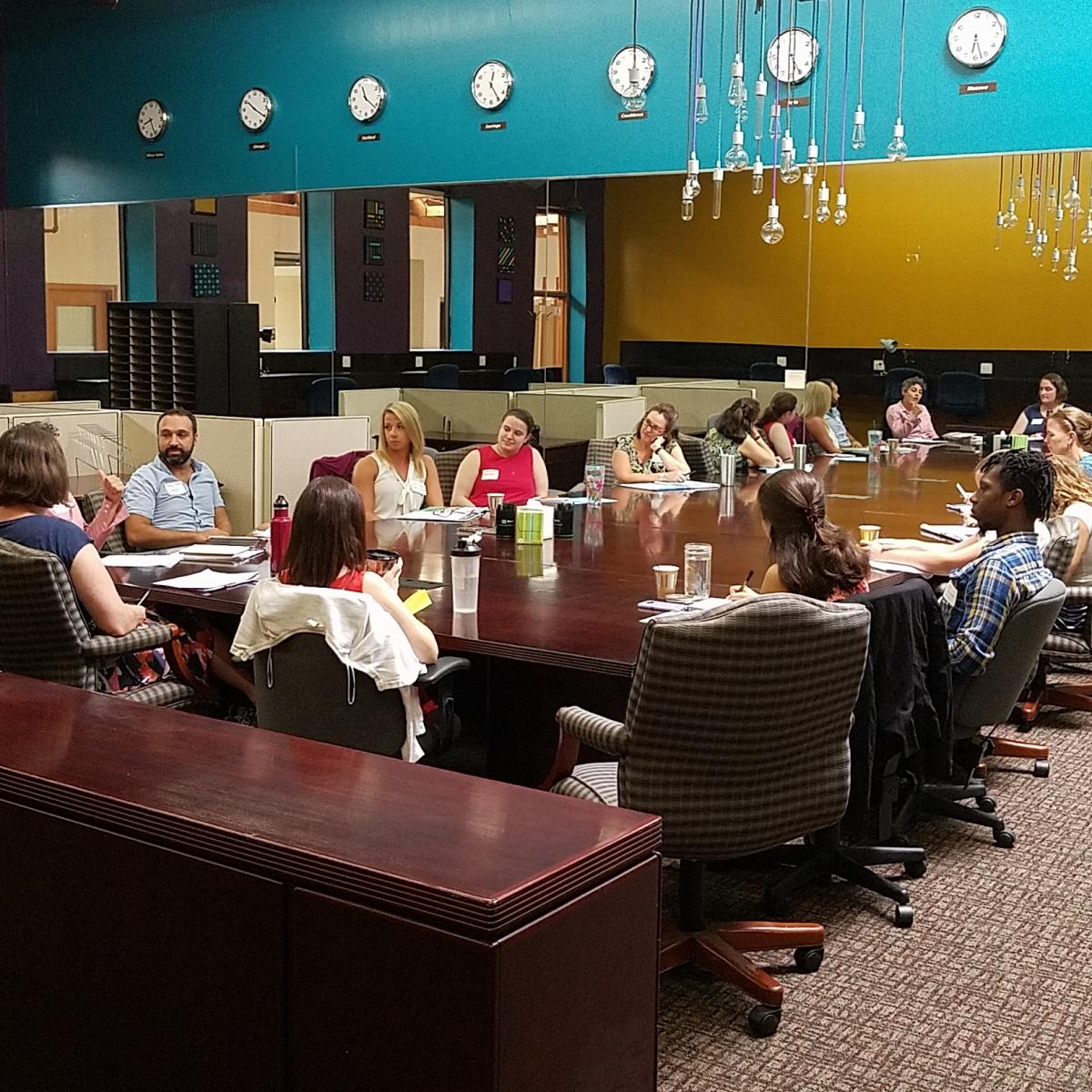 During the structured networking session, attendees participated in a “Get/Give” activity where they named a skill, resource, or connection they had to offer and one they needed to do their work better. Climate activists such as Sara Bronin of the Hartford Planning and Zoning Commission shared that Hartford is developing a Climate Action Plan and is looking for feedback on it. Others expressed interest in finding work in the food system.
During the structured networking session, attendees participated in a “Get/Give” activity where they named a skill, resource, or connection they had to offer and one they needed to do their work better. Climate activists such as Sara Bronin of the Hartford Planning and Zoning Commission shared that Hartford is developing a Climate Action Plan and is looking for feedback on it. Others expressed interest in finding work in the food system.
Finally, the panelists from the morning were mixed into new panels to discuss the intersections between the CFSA’s three major goals (Informed Consumers, Strong Communities, and Sustainable Food Economy). Panelists discussed the relationship between consumer and farmer, expressed concerns and barriers between the two, and how policy can impact this relationship the farmland viability and nutrition/agricultural curriculum panel served to round out the bigger picture and help stimulate the idea of crossovers between topics and how issues influence one another.
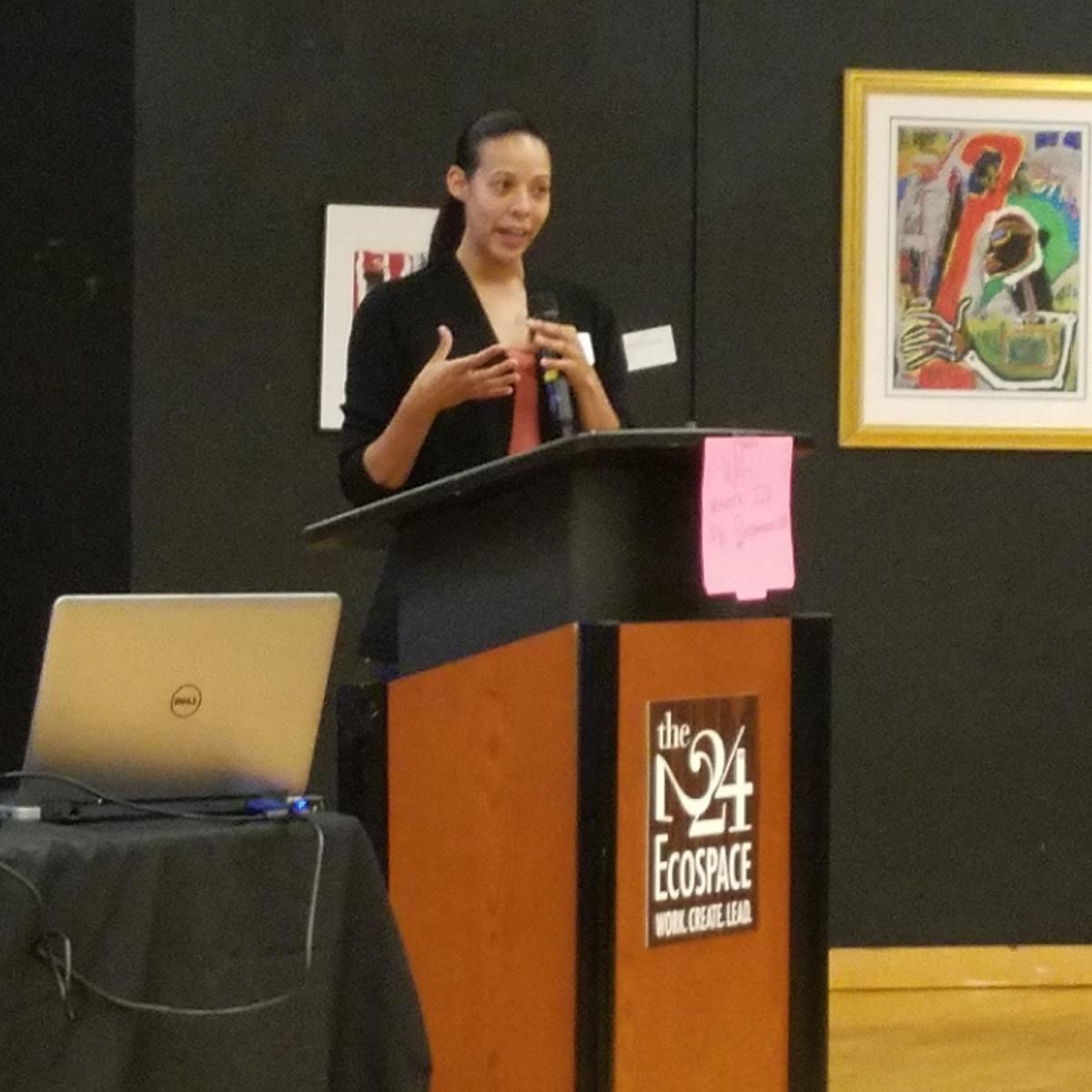 Attendees and panelists alike shared poignant insights throughout the day, showing that people are often thinking about the food system even if they aren’t using “systems” language. Since we are all eaters, we’re all part of the food system. One attendee asked, “Why aren’t more business engaged in urban agriculture? Why is it mostly being done by nonprofits?” This statement shows understanding of the issues that exist in the current food system and points to the challenge of profitability for urban agriculture operations.
Attendees and panelists alike shared poignant insights throughout the day, showing that people are often thinking about the food system even if they aren’t using “systems” language. Since we are all eaters, we’re all part of the food system. One attendee asked, “Why aren’t more business engaged in urban agriculture? Why is it mostly being done by nonprofits?” This statement shows understanding of the issues that exist in the current food system and points to the challenge of profitability for urban agriculture operations.
During one of the panels, Michael Keilty of Maple Spring Farm summed up the point of the day and of the Connecticut Food System Alliance with one succinct, tweetable thought: “We can’t live here if we don’t have good food!” While seemingly simple in concept, it is a very stark realization to recognize how many people do not consistently have access to “good food” and what the consequences are in other areas of life.
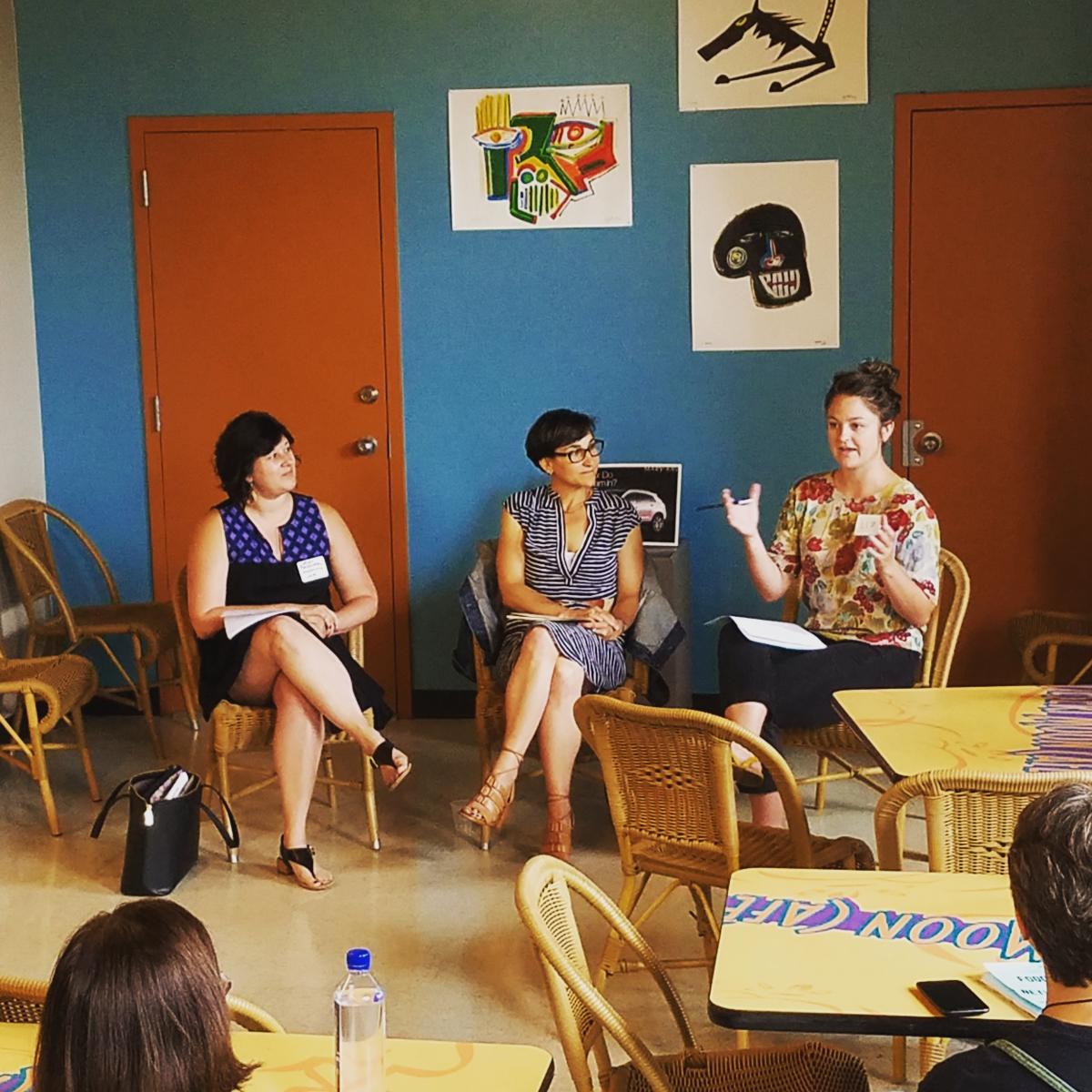 Attendees also drew attention to equitable access in the local food movement. We cannot simply tell people to eat healthier. James Jeter said, “When farmers say they want their customers to come to the farm and see where food is grown, how can they get there from the city?” The local food movement encourages consumers to “meet their farmer” and know where their food comes from, but there is little support or guidance on how to do this!
Attendees also drew attention to equitable access in the local food movement. We cannot simply tell people to eat healthier. James Jeter said, “When farmers say they want their customers to come to the farm and see where food is grown, how can they get there from the city?” The local food movement encourages consumers to “meet their farmer” and know where their food comes from, but there is little support or guidance on how to do this!
Another attendee brought up how important marketing and language are to the food system. As in the environmental world, some words have begun to lose favor or are no longer looked upon as “attractive” words to use. One attendee suggested that the language of “entitlement” should change when we talk about SNAP (food stamps) – “Food is essential, not an entitlement!” We can see from that statement that by changing language, we can also change the perception of how issues are viewed.
With the active discussion, there was a sense of momentum and an opportunity to build a network amongst those who arrived and those who would become future members of the Connecticut Food System Alliance. There was a sense of community built in hopes for a better food future.
So what is next for the Connecticut Food System Alliance? We are asking individuals and organizations to join the Alliance. The benefits are many: being able to find out about events in your community and throughout Connecticut related to food and farming, post events, connect to neighbors and other people in Connecticut with similar interests, find jobs related to agriculture and food justice, learn about volunteer opportunities in your community, learn more about the food system, and help shape food policy in Connecticut to improve access to food and promote sustainable agriculture.
CLICK HERE TO JOIN THE ALLIANCE!
Jasper Sha is the communications specialist for the Connecticut Food System Alliance (CFSA). He is also the naturalist at Goodwin Conservation Center and comes from an environmental science background with a strong interest in communication. Being new to the food systems scene, he hopes to bring an outsider’s perspective to the CFSA table.




